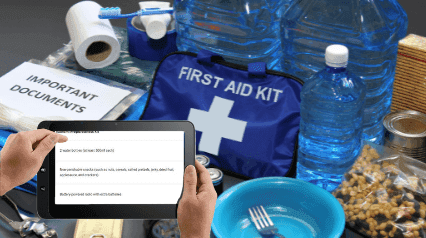A Guide to Reputation Management
This guide will discuss what reputation management is, why it’s important, and ways in which business leaders can maintain their organization’s healthy image

Published 12 Jun 2024
Article by
4 min read
What is Reputation Management?
Reputation management is an ongoing process of influencing and shaping the public perception of an individual, company, or brand. This process involves monitoring how people perceive you or your organization and then working on improving it. The goal is to maintain a positive reputation and address any problems that publicly arise.
Why is it Important?
Having a dedicated point person for reputation management helps maintain a positive reputation, as it can impact things like purchasing decisions that can most likely affect your overall business performance. This also allows your brand to proactively address and correct any misleading or malicious information about your organization, preventing or mitigating damage to your brand.
Most importantly, effective reputation management can help your brand with the following:
Trust and Credibility
Acquiring customer trust is vital for purchasing decisions. Online reviews are a significant factor in building trust with customers before they make a product or service purchase. Positive reviews help establish credibility, making it more likely for customers to trust a brand and return for future business.
Business Success
A good reputation can directly impact revenue, but a strong reputation can help a business stay ahead of competitors. Reputation also plays a significant role in determining a company’s market value.
Basic Components of Reputation Management
Reputation management usually involves a set of components and tasks:
Public Perception – This involves continuously monitoring how your brand is perceived by the public across various channels (press, social media, etc.). As a business leader, you should be able to be aware and identify both positive and negative sentiments about your brand.
Crisis Management – Have a plan to quickly and effectively respond to and manage any reputational crisis or negative events involving your organization. Regularly review and assess your crisis response capabilities. Ensure your crisis communications team is prepared to handle potential threats.
Online Presence – Proactively shape public perception by creating consistent positive content and addressing issues.
Engagement – Encourage brand advocacy by fostering positive relationships with customers, employees, and the brand’s corporate social responsibility .
Tips and Strategies for Effective Reputation Management
Effective reputation management involves several key action points. Here are some of the best tips and strategies:
Monitor Your Online Presence
Keep track of mentions of your brand, competitors, and industry keywords to stay informed about online conversations using tools like Google Alerts. The same goes with your social media profiles—keep an eye on your social media activities that mention your brand using social listening tools.
Respond to Reviews and Feedback
Monitor reviews and address feedback quickly and professionally to mitigate potential damage to your brand. This also shows commitment to placing customers first and ensuring satisfaction.
In addition, be transparent, authentic, and forthright about any mistakes or negative feedback and take steps to address them. Provide viable solutions to customer concerns and complaints to demonstrate a commitment to customer satisfaction.
Build a Positive Online Presence
Consistently create engaging content that develops a high-quality, informative, and visually appealing way to showcase your brand’s personality and values. This should essentially include testimonials from satisfied customers to share their positive experiences online.
Follow Brand Standards
Define your brand’s core values and establish a clear messaging that guides your organization’s standards. Leverage tools and software to keep track of performance, analyze data, and proactively address potential threats to keep your organization compliant with your brand standards.
Integrate ESG principles into your operations
Drive sustainable growth and create long-term value with our ESG solutions.
Risks Involved in Reputation Management
Reputation management may also involve several risks if a brand reputation is mishandled. This can significantly impact your brand image and ultimately affect your business success. Here are some common reputational risks that you may encounter:
Impact on Trust and Credibility – A negative public image can make customers lose trust in your organization, potentially harming your brand, market value, and overall revenue. This can also decrease your chances of attracting and retaining customers, employees, and investors.
Influence on Business Success – Reputational damage can have a lasting and dramatic effect on your company’s financial health and its chances of sustainability. A damaged reputation can make it harder to secure funding and grow your business due to eroded investor confidence.
Improve Your Brand Reputation Management Using SafetyCulture
Why Use SafetyCulture?
SafetyCulture is a mobile-first operations platform adopted across industries such as manufacturing, mining, construction, retail, and hospitality. It’s designed to equip leaders and working teams with the knowledge and tools to do their best work—to the safest and highest standard.
Promote a culture of accountability and transparency within your organization where every member takes ownership of their actions. Align governance practices, enhance risk management protocols, and ensure compliance with legal requirements and internal policies by streamlining and standardizing workflows through a unified platform.
✓ Save time and reduce costs ✓ Stay on top of risks and incidents ✓ Boost productivity and efficiency ✓ Enhance communication and collaboration ✓ Discover improvement opportunities ✓ Make data-driven business decisions
FAQS about Reputation Management
Related articles
Environmental Safety
Safety

A Comprehensive Guide to Stormwater Pollution Prevention Best Management Practices (SWPPP BMP)
Learn about the types of best management practices for SWPP and the steps to effectively implement them in prevention plans.
Risk Assessment
Safety

The Ultimate Guide to Emergency Preparedness and Response
Learn how you can develop an effective emergency plan and stay one step ahead of natural disasters or other catastrophes.
Safety
Safety Management

Disaster Preparedness Plan
Learn more about the disaster preparedness plan, its importance, features, and example. Find out how a digital tool can help prepare against disasters.